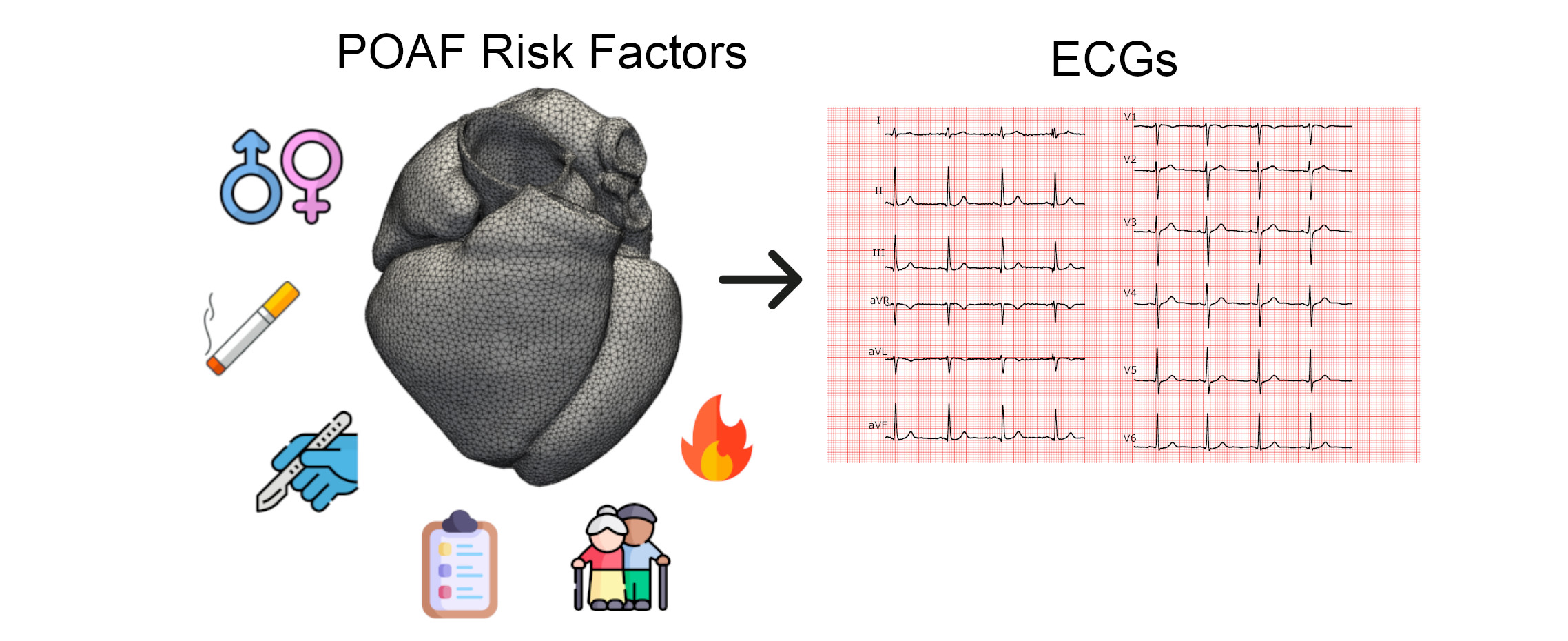Postoperative Atrial Fibrillation Risk Factor Simulation
-
Projekt:
Computermodelle des Herzens
-
Position:
Hiwi Position
-
Institut:
Institut für Biomedizinische Technik
-
Eintrittstermin:
Sofort
- Kontaktperson:
Motivation
Postoperative atrial fibrillation (POAF) is a frequent and costly surgical complication. Its complex mechanisms, involving diverse clinical risk factors and limited access to high-resolution physiological data, hinder effective prediction and thus tailored prevention. To advance this, we propose mechanistic computational modeling to generate synthetic ECG data. These data will overcome real-world limitations, enabling robust machine learning studies for POAF prediction.

Tasks
The primary goal of this project is to develop and implement a first-principle simulation pipeline within an established mechanistic framework, generating high-fidelity synthetic ECG data for POAF prediction. This extends an existing cardiac electrophysiology model in openCARP. The student assistant will assist in the technical implementation and execution of this data generation pipeline. This includes pipeline development, focusing on setting up and optimizing automated scripts for parameter variation and efficient workflows for running large-scale openCARP simulations. The role also involves data generation and curation, specifically executing extensive simulations, managing outputs, and curating the resulting synthetic ECG dataset for quality and consistency. Optionally, tasks may extend to risk factor integration, which involves translating clinically relevant POAF risk factors (e.g., acute atrial stretch, inflammation, oxidative stress) into quantifiable parameters within openCARP, including modeling mechano-electric feedback and modulation of potassium currents/conduction velocity.
Your profile
- Programming skills in C++, Python or a similar language are advantageous.
- Basic knowledge of cardiac physiology is an advantage.

